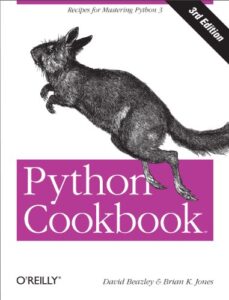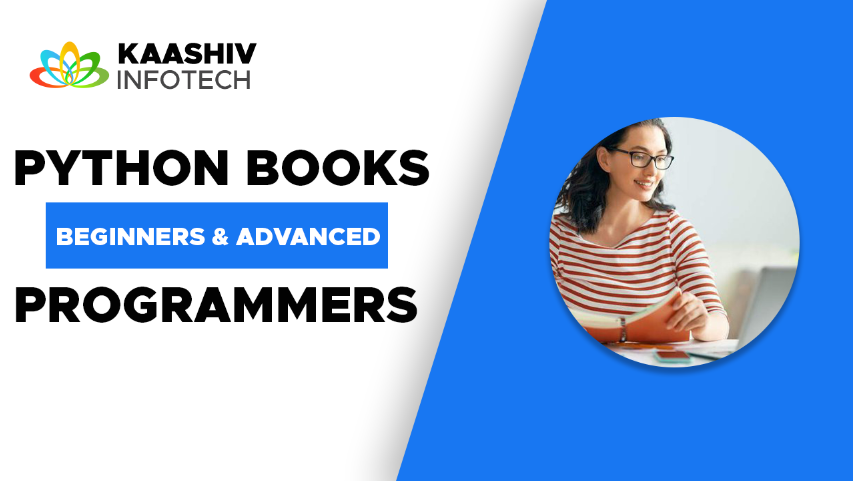Introduction
Python is a versatile and popular programming language, suitable for both beginners and advanced developers. Whether you’re just starting or looking to enhance your Python skills, there are several excellent books available to help you along the way. Below, we’ll explore some of the best Python books for beginners and advanced programmers.
1.Python Crash Course – 2nd Edition
Python Crash Course by Eric Matthes is an excellent choice for beginners. It covers the basics of Python programming and gradually introduces more advanced concepts. The book includes hands-on projects, making it easy to practice and apply what you’ve learned.

2.Head First Python
Head First Python by Paul Barry is a beginner-friendly book that uses a visually engaging and interactive approach to teach Python. It covers fundamental Python concepts and includes practical exercises and quizzes to reinforce your learning.

3.Python Cookbook: Recipes for Mastering Python 3
The Python Cookbook by David Beazley and Brian K. Jones is perfect for intermediate to advanced programmers. It offers a collection of practical Python recipes, helping you solve real-world problems efficiently using Python 3.

4.Automate the Boring Stuff with Python
Automate the Boring Stuff with Python by Al Sweigart is an excellent resource for beginners and those interested in automating everyday tasks. It covers practical Python programming for automating tasks like web scraping, data manipulation, and more.

5.Learn Python 3 the Hard Way
Learn Python 3 the Hard Way by Zed A. Shaw is a hands-on book that emphasizes practical exercises and drills to teach Python. While it may sound “hard,” it’s designed to help you build a strong foundation in Python programming through repetition and practice.

6.Fluent Python: Clear, Concise, and Effective Programming (1st Edition)
Fluent Python by Luciano Ramalho is geared towards programmers who want to move from intermediate to advanced Python proficiency. It explores Python’s features in-depth, emphasizing Pythonic coding style and best practices.

7.Programming Python: Powerful Object-Oriented Programming (4th Edition)
Programming Python by Mark Lutz is a comprehensive guide for experienced developers. It covers object-oriented programming in Python and delves into advanced topics, including GUI development and network programming.

8.Grokking Algorithms: An Illustrated Guide for Programmers and Other Curious People (1st Edition)
While not exclusively a Python book, Grokking Algorithms by Aditya Bhargava is a fantastic resource for Python developers interested in algorithms and data structures. It uses Python examples to explain complex algorithms in an accessible way.

9.Learning Python, 5th Edition
Learning Python by Mark Lutz is a comprehensive introduction to Python. It covers the language from beginner to advanced levels and includes practical exercises and examples. This book is suitable for both newcomers and experienced programmers looking to learn Python.

10.Elements of Programming Interviews in Python: The Insider’s Guide
Elements of Programming Interviews in Python by Adnan Aziz, Tsung-Hsien Lee, and Amit Prakash is aimed at programmers preparing for coding interviews. It provides Python-specific solutions to common coding interview questions, helping you prepare effectively.

Conclusion
Choosing the right Python book depends on your current skill level and your specific goals. Whether you’re a beginner looking to get started or an advanced programmer aiming to deepen your Python knowledge, the books mentioned above cover a wide range of topics and skill levels. Select the book that aligns best with your needs and start your Python learning journey or advance your Python programming skills today.
FAQ
1.Can I learn Python from a book?
Structured Learning
Python books are typically designed to provide a structured and organized curriculum. They often start with the fundamentals and progressively cover more advanced topics.
Comprehensive Content
Many Python books offer comprehensive coverage of the language, including topics like basic syntax, data types, control structures, functions, object-oriented programming, and various libraries and frameworks.
2.Can I learn Python as a Beginner?
-
Is Python a good programming language for beginners?
Yes, Python is an excellent programming language for beginners. It has a straightforward and readable syntax, which makes it easier to learn and understand, even for those with no prior programming experience.
-
Do I need prior programming experience to learn Python?
No, you don’t need any prior programming experience to start learning Python. Python is designed to be beginner-friendly and is often chosen as a first programming language.
3.How can I get started with learning Python as a beginner?
To get started with Python as a beginner, you can follow these steps
- Choose a Python tutorial or course designed for beginners.
- Set up a Python development environment on your computer.
- Start with the basics, including variables, data types, and basic operations.
- Practice writing simple Python programs and gradually move on to more complex projects.

